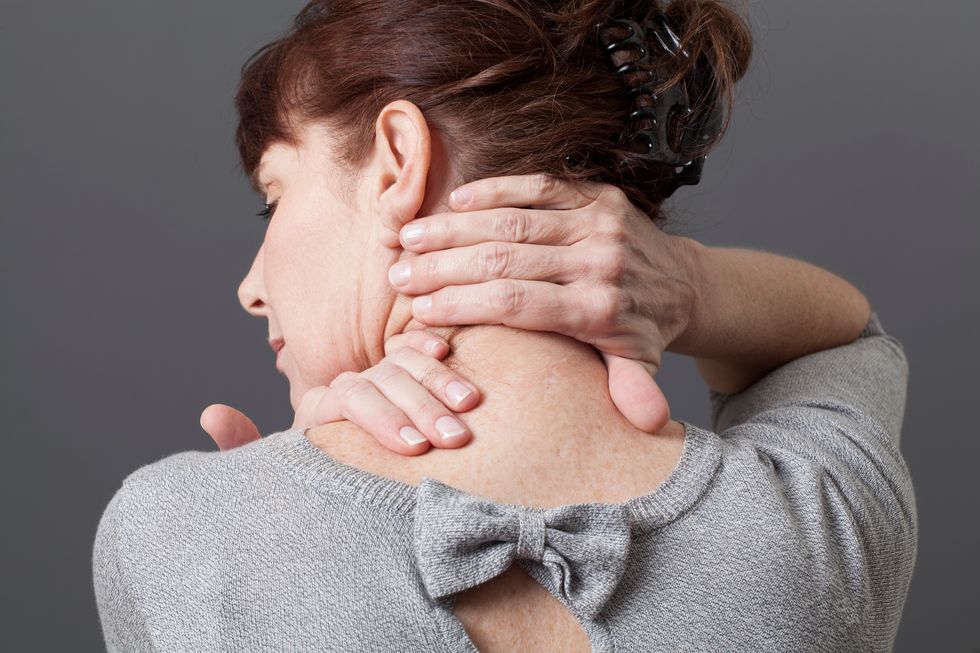
Acupressure Is Good Medicine for Breast Cancer Survivors
Breast cancer survivors struggling with common, lasting symptoms stemming from their treatments may find relief in self-applied acupressure.
Jan 24, 2019
Dec 12, 2022
Your Body
Learn about our editorial policies

THURSDAY, Jan. 24, 2019 (HealthDay News) -- Breast cancer survivors struggling with common, lasting symptoms stemming from their treatments may find relief in self-applied acupressure, new research suggests.
For survivors with fatigue, self-acupressure improved related issues such as chronic pain, anxiety, depression and sleep difficulties more than usual care, the scientists found.
"We know breast cancer survivors have a lot of fatigue and co-occurring symptoms, two to four times more than [healthy peers] of the same age, so it's a big problem," said study author Dr. Suzanna Zick. She's a research associate professor of family medicine at University of Michigan.
"We think [self-applied acupressure] actually changes neurochemicals in the brain," she added. "Women do not have a problem learning this technique at all."
A traditional Chinese medicine technique based on the same principles as acupuncture, acupressure applies pressure, instead of needles, to certain key points on the body believed to be linked to various symptoms.
In prior research, Zick and her colleagues found that acupressure lessened fatigue in breast cancer survivors. For the new study, they focused on 288 patients who experienced problems on top of fatigue, such as depressive symptoms, anxiety, pain and poor sleep.
Participants were split into three groups: usual care, which offered sleep management techniques; relaxing acupressure; and stimulating acupressure. The two acupressure techniques differ by which points on the body are stimulated.
Those self-applying relaxing acupressure were taught to use the tip of a finger, thumb or pencil eraser to push down firmly with a circular motion on five points on the body. They include: between the eyebrows; behind the ears; inside the wrists; inside the ankle; and on top of the feet.
After six weeks, participants applying relaxing acupressure each day experienced more significant symptom improvement than the others. Depressive symptoms improved by more than 41 percent for these participants, compared to 25 percent for stimulating acupressure patients and about 8 percent for patients receiving usual care.
Both acupressure groups saw greater improvements in anxiety than the usual care patients, but only relaxing acupressure was linked with higher reductions in pain.
Dr. Roshni Guerry is medical director of Christiana Care Health System's supportive and palliative care program in Wilmington, Del., and wasn't involved in the new study. But she said she was impressed by the significance of the results.
"This intervention of self-acupressure only added 10 minutes of time [per day], which, in my eyes, is a high yield for a small fraction of time," Guerry said.
While her practice doesn't currently teach self-applied acupressure to patients, Guerry noted that the technique won't lead to additional side effects the way medications might.
"For example, if I treat someone's pain with a medication, I then might also have to treat the side effect of constipation with additional medications," Guerry said. "I also like the idea of using one tactic, such as acupressure, for multiple symptoms. Using one tactic could lead to better compliance."
Patients living with symptoms such as anxiety and pain are highly motivated to improve their quality of life, so many would be open to learning self-acupressure, she added.
"The limiting factor would be access to acupressure educators and the associated licensed acupuncturist to guide them," Guerry said.
The study was published online Jan. 16 in JNCI Cancer Spectrum.
Copyright © 2019 HealthDay. All rights reserved.